Hear from our Head Roaster, Dom, about his recent sourcing trip to Ethiopia.
Ethiopia is an important origin for coffee drinkers. For many who grew up drinking instant coffee, a naturally processed Ethiopian is the first to reveal coffee’s potential. I know this was the case for me.
Myself and Mike were invited by our sourcing partners, Sucafina, to join them on their buying trip to Addis Ababa and visit some of the farmers they work with through the Lalisaa project. Our goal was to learn more about Ethiopia as a coffee producing country and find farmers through whom we could source coffee that aligned with our values of quality and sustainability.
We landed in Addis Ababa with an intense itinerary, with no time for jet lag. From the airport, we were taken straight to cupping sessions. Over the course of the day, we tasted more than 200 coffees. I’ve tasted plenty of Ethiopian coffee over the years but it’s always such a valuable experience to cup large amounts of coffee and see the variety that the country has to offer. Citrus and floral notes dominated many of the washed Ethiopian coffees we cupped, while the natural process coffees brought vibrant fruitiness and surprising depth.


Anaerobic processed coffees made plenty of appearances on the cupping tables as well. This method has gained popularity for its intense flavour profiles it creates. While they can divide opinions (think marmite), one coffee in particular stood out. This coffee from Meselech Tube is currently on our offering and feedback has been great.
We also had the privilege of participating in a traditional Ethiopian coffee ceremony. Watching coffee roasted fresh over an open flame, ground by hand, and brewed meticulously was a reminder of how deeply embedded coffee is in Ethiopian culture. This ritual wasn’t just about consumption; it was about connection—to the land, to tradition, and to one another. We even picked up some local honey, a small but meaningful souvenir that highlighted Ethiopia’s diverse agricultural heritage.

Coffee being poured from a jabena
After a few intense days of cupping and shortlisting coffees in Addis Ababa, we flew south to Hawassa, a city perched on the shores of a picturesque lake. From there, we drove further south to Gedeb. The journey took us through mountains and lush green landscapes dotted with small villages.
In Gedeb, we met Marta Alemu, a farmer whose coffee we had cupped earlier in the week. We toured Marta’s farm as she proudly explained her approach to growing and processing coffee. Marta, like many other farmers, have a holistic approach to farming with intercropping false banana trees for shade, as well as growing bamboo to later use for drying beds.

Mike, Dom, and the team from Sucafina Ethiopia with Marta and her husband
Marta is part of the Lalisaa Project, an initiative by Sucafina that aims to empower farmers through sustainable practices and transparent supply chains. Her natural process coffee stood out for its sweet fruit notes and velvety texture. The Lalisaa Project also ensures that farmers like Marta receive fair compensation and access to resources to improve their practices. For Marta, this support translates to a higher degree of financial stability and the ability to invest in her farm’s future. Knowing that our purchase directly supports her work and contributes to the long-term viability of her farm.
Ethiopia’s coffee history is rich and complex. It's the birthplace of Arabica coffee, a fact that’s both a source of pride and a unique challenge. The country’s coffee sector operates in a delicate balance between tradition and modernity. Many farmers still rely on centuries-old practices, such as hand-picking cherries, which result in exceptional quality but are labor-intensive and time-consuming. At the same time, global demand for specialty coffee puts pressure on producers to scale up and innovate.
Infrastructure is another challenge. Roads are often inadequate, making transportation of coffee from remote farms to processing stations a logistical hurdle. Additionally, the Ethiopian Commodity Exchange (ECX), while designed to bring transparency to the market, can sometimes add layers of complexity for producers trying to establish direct trade relationships. These systemic issues can create bottlenecks, delaying the flow of coffee from farm to market and adding stress to an already challenging environment.
Initiatives like the Lalisaa Project offer a way forward. By focusing on traceability, quality, and farmer empowerment, these programs help producers like Marta Alemu navigate the challenges of the global market while preserving the integrity of their coffee. The Lalisaa Project’s emphasis on transparency ensures that farmers receive fair compensation and recognition for their work, which in turn motivates them to continue producing exceptional coffee.

A farmer and his family travelling to their farm
This trip was a learning experience like no other. It deepened my appreciation for Ethiopian coffee and the people who make it possible. The coffee we cupped and the farms we visited drove home the sheer amount of effort, skill, and resilience that is required to produce coffee.
Mart Alemu’s coffee will soon be available in our offering and I can’t wait to share it. Its flavour profile—delicate florals, bright acidity, and a sweet, lingering finish—is a testament to Marta’s hard work.
Dom, Head Roaster at Redemption Roasters



